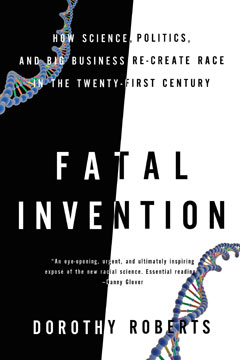New doc on Shadeism doesn’t make the cutPosted in Articles, Book/Video Reviews, Canada, Media Archive on 2014-12-09 16:23Z by Steven |
New doc on Shadeism doesn’t make the cut
Mixed In Canada
2014-12-08
Debuting November 10th, 2014 on the CBC’s free preview on their documentary channel, Hue: A Matter of Colour opens with the narrator and main subject, Vic Sarin, discussing his relationship to his mixed-race family (or if anything lack thereof). This movie, he reveals, is his way of explaining his strange and often absentee behaviour to his children. The children provide an example of said behaviour by explaining how he refuses to go on the beach with them, choosing instead to stay out of the sun, as well as staying out of family photos. He also tells us that he has a strained relationship with his first born from a previous marriage, in part because he never showed up for a family vacation in the Caribbean due to his compulsion to work. Meanwhile, the backdrop is of the children packing for a family vacation to Sarin’s favourite destination, Brazil, the place where the film opens and closes.
While it is a bit obscure at first, he eventually informs the viewer that he was born in India to a diplomat father (read privileged), raised in Australia for a while, eventually ended up in Toronto Ontario in the 60s, and now resides in Vancouver, BC with his family. Every country of residence impacts him in a different way: in India he discusses how he was scolded for playing in the sun. In Australia he very badly wants to become a citizen but is denied due to racist immigration policies which devastates him. In Toronto he was very aware that he was marginalized and isolated, being one of only a few people of colour, and having only white friends. He also rhetorically asks an insightful question regarding his choice in marrying two white women, commenting on how that was likely not a coincidence, regardless of the real or perceived lack of eligible Indian women in Canada.
As a viewer, it was pretty clear to me from the outset that this documentary was going to be centered around his and other people of colour’s internalized racism, which is very much related to and often a result of shadeism. However, the latter isn’t a necessary condition for the prior. In other words, while it is improbable that we can completely rid ourselves of our internalized racism as people of colour, I believe that it is possible to look at shadeism with a critical eye (not to be confused with the problematic & Eurocentric “objective” eye). Simply discussing internalized racism though, without even as much as naming it, is a dangerous arena in which to venture unless you come prepared with heavy critical analysis to accompany it. Unfortunately, this is not what happens, which leads to several problematic & triggering moments in the film…
Read the entire review here.



